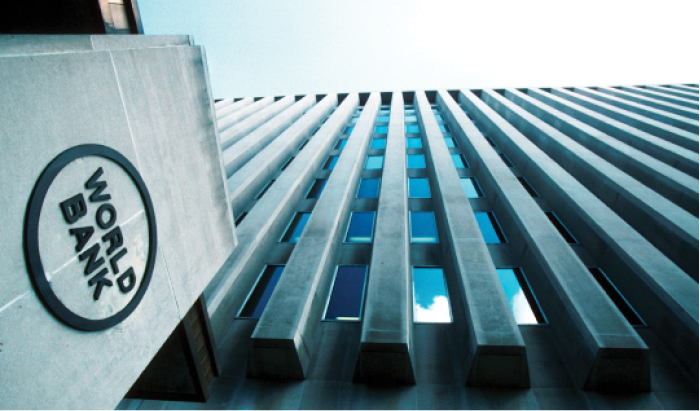Analysts have disagreed with the World Bank Group President, David Malpass, over calls for the incoming Nigerian president, Bola Ahmed Tinubu, to tackle trade protection that blocks importation, address dual exchange rates, and diversify the economy.
Malpass made the remarks during a press conference at the ongoing 2023 World Bank/IMF spring meeting at the IMF headquarters in Washington DC on Thursday.
Responding to questions on what the president-elect will need to do to address economic concerns, Malpass said: “For Nigeria, the growth was 3.3 per cent in 2022 and 2.8% in 2023 within our forecast.
“The World Bank is working hard within Nigeria but also working to try to have an economic system that can be more productive, and that means Nigeria has trade protection that blocks market development. They have a dual exchange rate that is very expensive for the people of Nigeria to maintain that dual exchange rate system. They have high inflation and not enough diversification of the economy to really make sufficient progress.”
FG spent N13trn on subsidies in 16 years, thieves stole N16trn oil – NEITI
Buhari performs Umrah amid tight security in Makkah
The World Bank had repeatedly argued that In Nigeria, many policies limit trade. In its recent publication on how Nigeria can harness trade to lift people out of poverty, it argued that throughout the past two decades, import bans, tariffs, and foreign exchange restrictions have all curbed the flow of goods into Nigeria.
Analysts differ on trade protection
Analysts however reacted to the comment by the World Bank chief, noting that Nigeria was on track. A Lagos-based, financial analyst and former Economist at United Bank for Africa Plc, Abiola Rasaq, said: “I do not agree that Nigeria has major trade protections that undermine its economic progress, and I stand to be corrected, as I believe Nigeria actually has very weak trade policies and the impact of that is perhaps exacerbated by the porous borders, courtesy of the inefficient and corrupt institutions that are supposedly responsible for maintaining the integrity of the borders.”
Rasaq said every country has some forms of trade protection or the other, especially for sensitive and vulnerable sectors adding that the United States has one of the most stringent trade policies, including those banning exports of some goods, restrictions or outright ban on the importation of some goods and services.
“Nigeria is one of the few countries of the world that still openly allow “dumping” of goods and services that can perhaps be produced locally and which are perhaps of even national security,” he noted.
He said perhaps, the global bank misunderstood the Central Bank of Nigeria (CBN) prohibition of forex for importation of about 45 items, which is not a trade policy.
The CBN of course is not responsible for trade policies, as such falls in the remit of fiscal policies that needs to be coordinated amongst the Ministry of Trade & Investment, Finance and Foreign Affairs,” he added.
Rasaq said if the new government finds it appropriate to protect critical sectors or industries of national security and importance, “there is nothing wrong in doing such, rather it should be done in a logical way.”
An economic and business development consultant, Dr. Boniface Chizea said the war on the balance of trade advantage is not restricted to developing countries of the world. “It is also pronounced amongst the developed countries as one often hears the United States accuse Russia of unfair trade practices to gain market share advantage in the international market.
“The West must also accept the responsibility from the point of view of shared prosperity to facilitate market entry for products and services from developing countries of the world into their markets,” he noted.
Also speaking, Prof Uche Uwaleke, a professor of capital market, agreed with the World Bank President on Nigeria not diversifying its revenue base from oil as well as the high inflation rate.
He however insisted that the 43 export items restricted by CBN from access to forex were necessary at the moment.
Uwaleke said, “It’s important to note that the measure became necessary to encourage local production in support of the government’s import substitution policy.”
On the dual exchange rate, the financial expert said it was meant to conserve forex and protect external reserves especially during periods of low oil prices and petrol subsidy.
“In view of the arbitrage, round tripping and other sharp practices which multiple exchange rates encourage as well as their negative impact on foreign investments, I think it should be discontinued in line with the advice of the World Bank especially now that the new government has plans to remove fuel subsidy,” he explained.

 Join Daily Trust WhatsApp Community For Quick Access To News and Happenings Around You.
Join Daily Trust WhatsApp Community For Quick Access To News and Happenings Around You.


